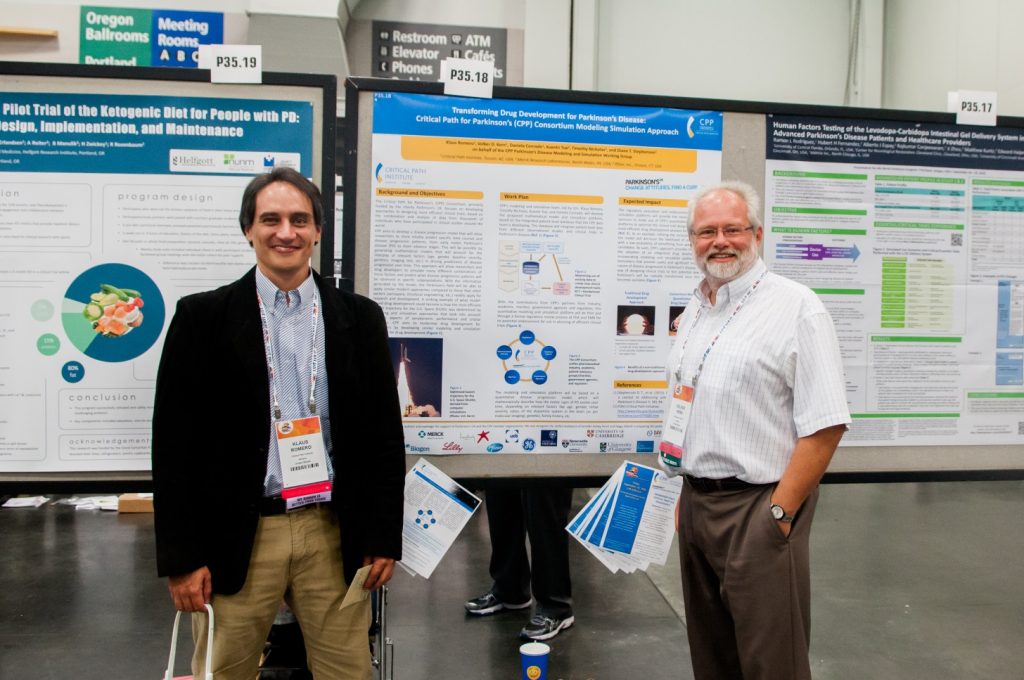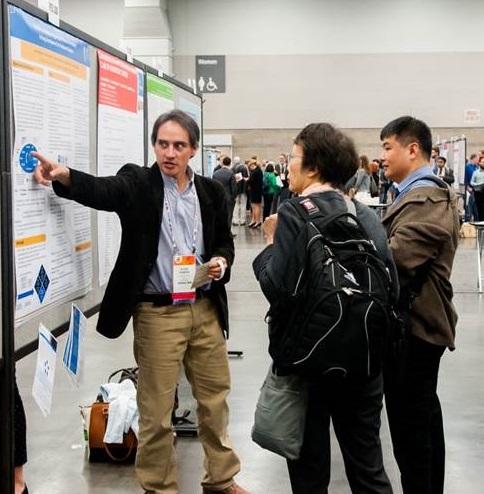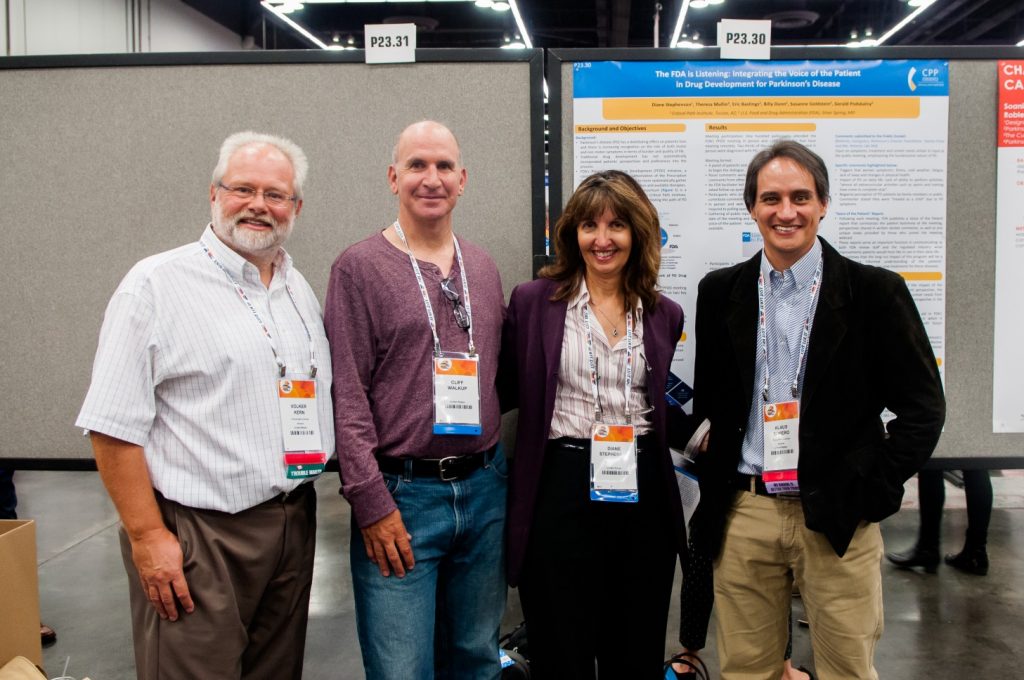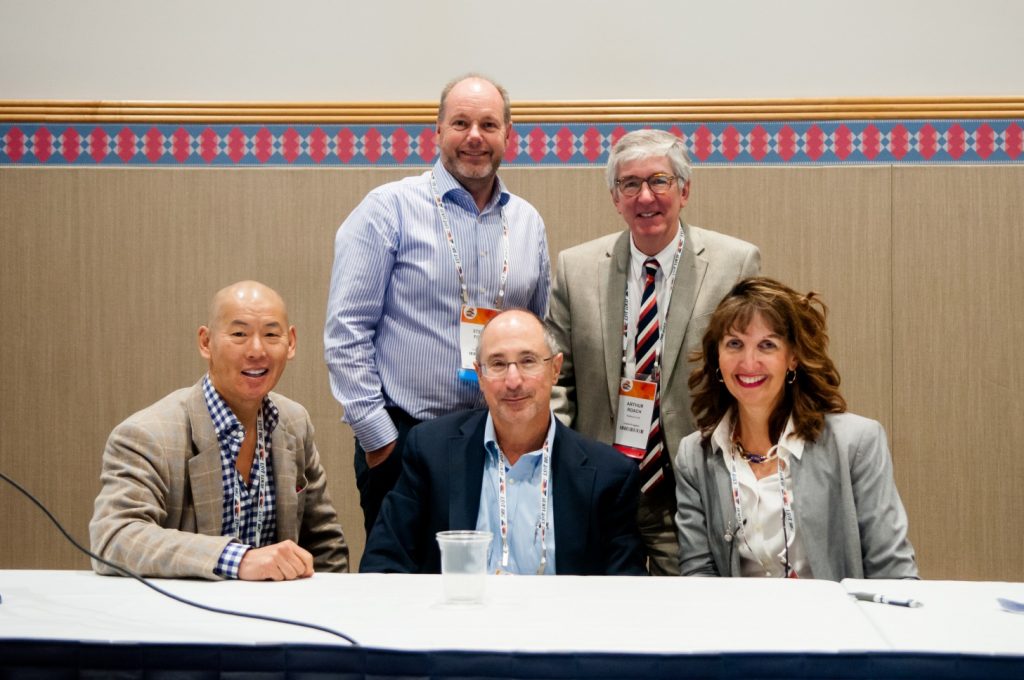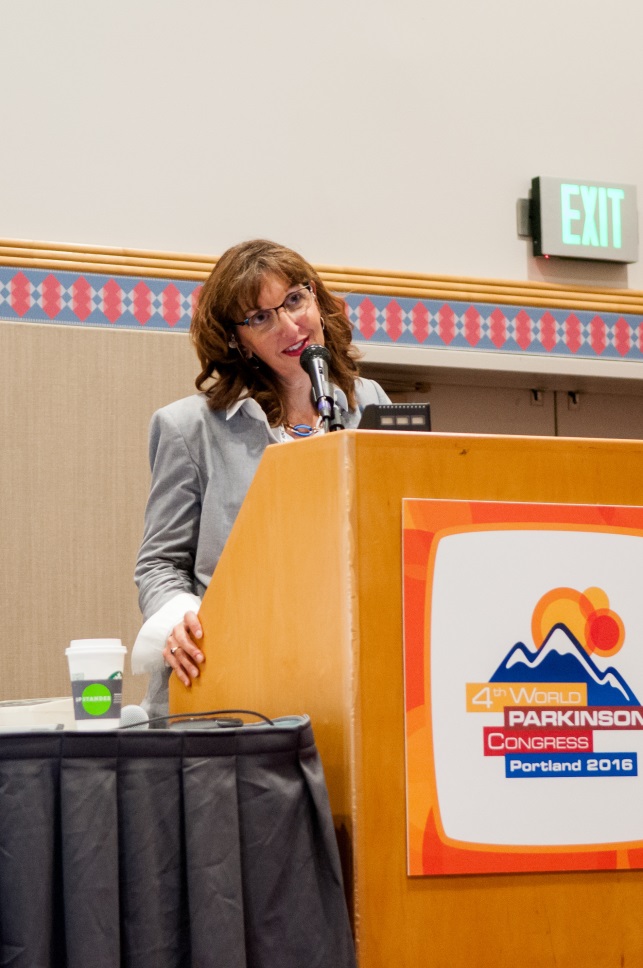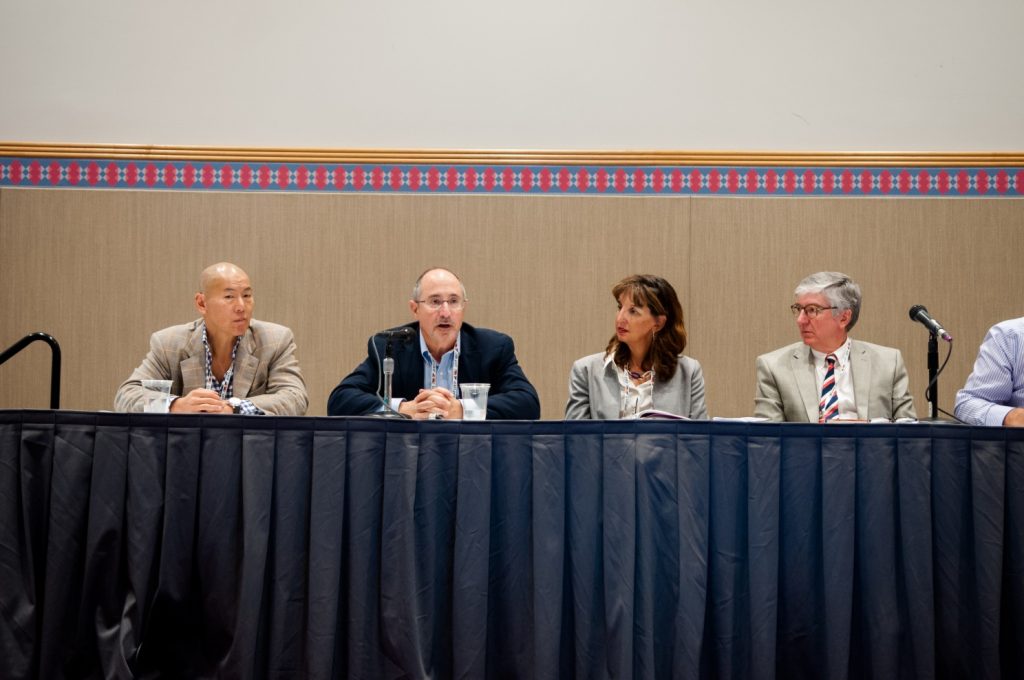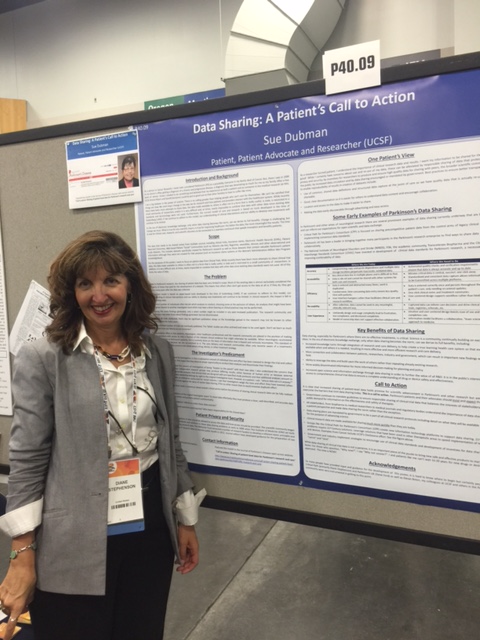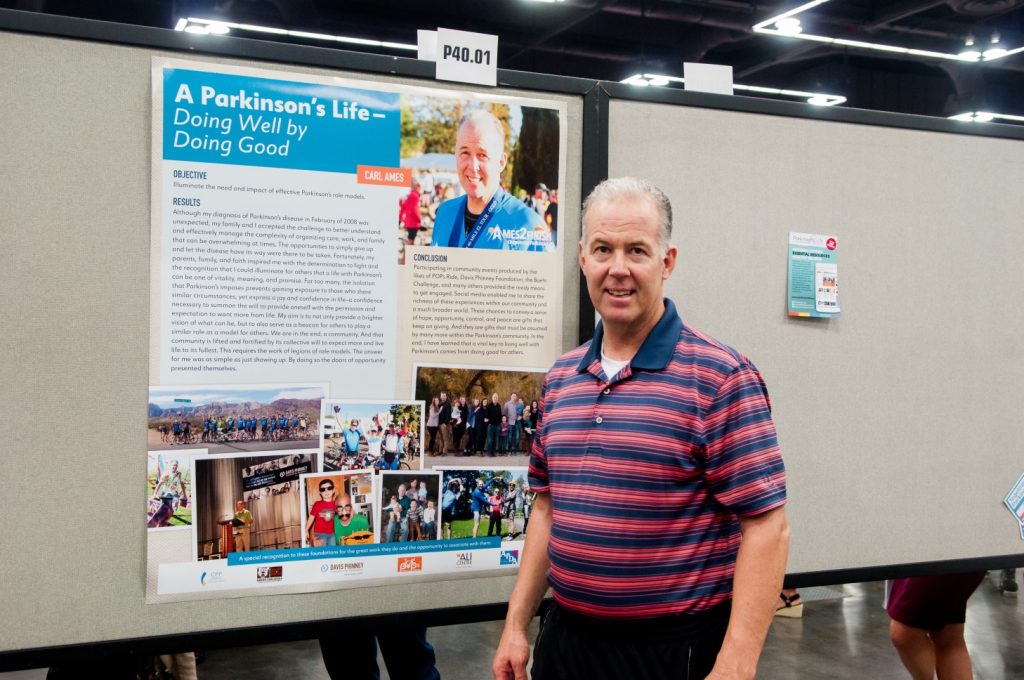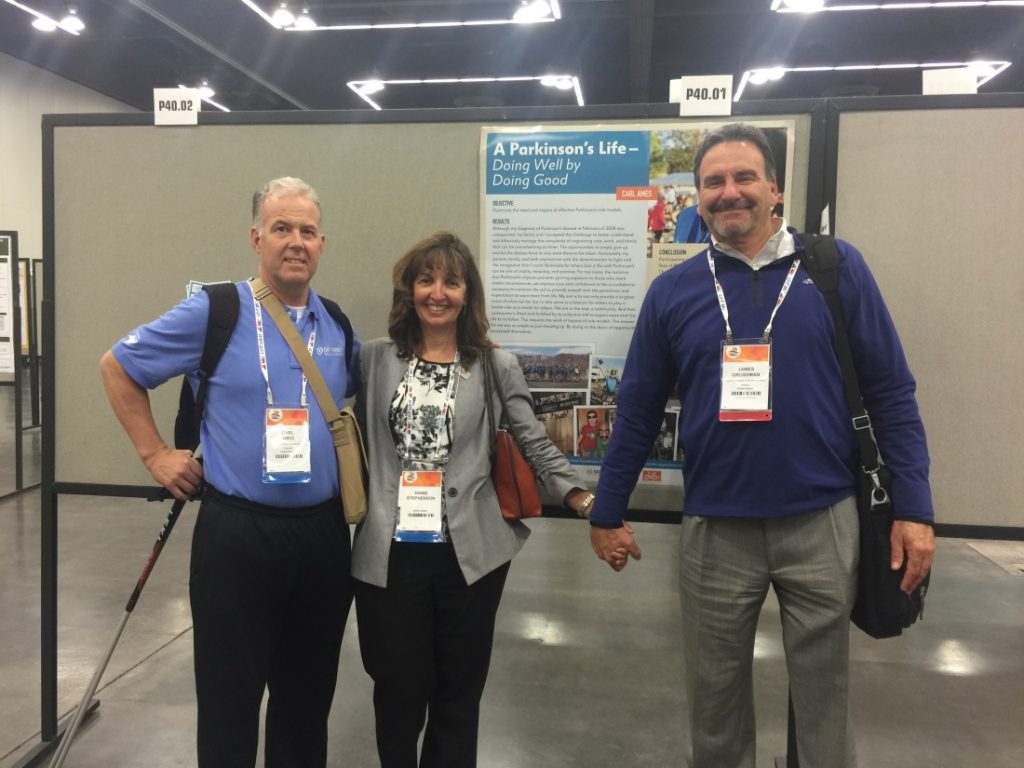World Parkinson’s Congress 2016: Summary and Photos
In September, Critical Path for Parkinson’s (CPP) participated in the World Parkinson’s Congress in Portland, Oregon. This is a unique meeting that brings together people living with Parkinson’s disease (PD), their care partners, and leading researchers, to learn of current advances in PD research and therapies.
This year was the best turnout to date, with 4,555 registrants from 67 countries. A very diverse mix from the Parkinson’s community participated, including 40% neuroscientists, clinicians, researchers, nurses, and rehab specialists; 28% people with Parkinson’s; 20% care partners/family members; 8% exhibitors; and 4% guests/media/staff.
The week began with the first-ever World Parkinson’s Congress Leadership forum, co-led by Steve Ford, who did an outstanding job outlining the needs and action plan for setting up a global Parkinson’s community. It was eye-opening to see how other countries are dealing with the challenge of this disease and hear about how cross-national alliances can build bridges and share information to help reach the many, many people in need of help, services, and innovation. Congratulations to Steve for his leadership in setting the table for the week, which focused on the WPC theme “Building a Culture of Collaboration.”
The inspirational opening ceremony featured presenters Brian Grant (Portland former basketball star) and May May Ali (Muhammad Ali’s daughter), both sharing visions of hope.
We had the pleasure of meeting so many new people living with PD and their care partners while attending outstanding presentations by leading experts, which included plenary sessions on the current landscape of DBS, genes and environment, and technology developments in the digital health space.
Our CPP posters were well received, and many conference-goers were impressed to learn of the FDA’s interest in listening to patients.
Our CPP panel was a true success. I want to personally thank our partners at Parkinson’s UK, Steve Ford and Dr. Arthur Roach, for their presentations of their strategy and why they set forth to support CPP from its inception. Dr. Jesse Cedarbaum was effective in communicating on our panel the need for patients and the community to get involved in clinical trials and research studies, and also conveyed how CPP brings value to industry. Special and warmest thanks go out to Dr. Kevin Kwok, who represented the patient perspective on our panel. Kevin effectively conveyed his views on the needs of a patient, the rewarding attributes of his role in attending the FDA’s patient-focused drug development meeting, and his positive attitude and rationale for volunteering to pave the way in new innovative DBS trials for PD. Professor Donald Grosset provided his views on why he and his team are willing to share data with CPP from the EU cohort studies, and Dr. Maurizio Facheris, with a sense of optimism, provided comments on advocacy vs. industry views on the needs for the field as a whole.
Kevin sent me this message, which I’m honored to share:
“After our panel, a wife of a PD patient from Toronto came up to me and was so gracious in saying our panel really gave her hope and was the highlight of WPC. She was almost in tears. It certainly made me realize how important cross collaboration and Critical Path’s mission is!”
Although Sue Dubman could not be with us last week in person, we highlighted her new blog on patient perspectives on data sharing now posted to the JPD website, definitely core to what we are doing and worth a read:
We all have a great deal to be proud of, with greater awareness that our collaborative network is really poised to make a difference.
Sincerely,
Diane Stephenson, PhD, CPP Executive Director
Quotes from industry members who attended WPC 2016:
“I can’t help thinking that CPP truly is the right platform for successfully lifting development potentials in the field of Parkinson’s. It seems from your email that all stakeholders—patients & carers/regulators/industry/advocacy groups—are supportive of the mission and actions of the consortium. The grounds are laid down for success and we are proud to take part.”
“On a separate note, I didn’t have a chance to tell you after the WPC panel the feedback I got from talking to random patients and caregivers. The people I talked to felt very encouraged by the efforts of CPP. Most of them didn’t realize groups are working together to hasten drug development. Some asked how they could contribute and help. Overall, the response was very positive. Thank you so much for the work that you and your colleagues do at CPP.”
PHOTO CREDITS: Jacie Ames and Diane Stephenson




